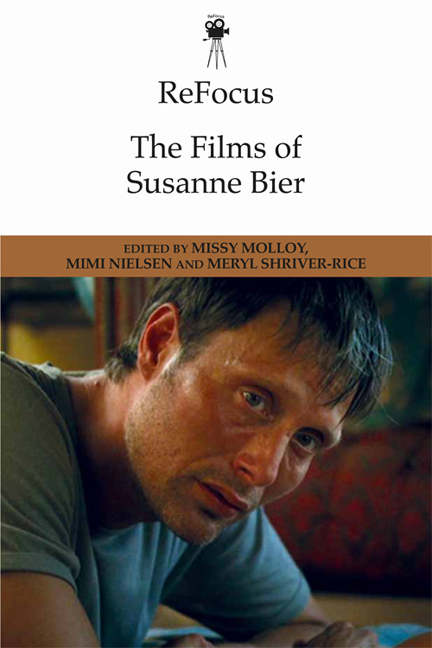Book contents
- Frontmatter
- Contents
- List of Figures
- Notes on Contributors
- Foreword
- Introduction: Susanne Bier's Boundary-Crossing Screen Authorship
- Part 1 Generic and Industrial Fluidity
- Part 2 Negotiating Identity
- Part 3 Authorship and Aesthetics
- Part 4 Transnational Reach
- Postscript: A Conversation with Susanne Bier
- Filmography of Susanne Bier
- Acknowledgments
- Index
2 - Negotiating Special Relationships: Susanne Bier's Comedies
Published online by Cambridge University Press: 01 May 2021
- Frontmatter
- Contents
- List of Figures
- Notes on Contributors
- Foreword
- Introduction: Susanne Bier's Boundary-Crossing Screen Authorship
- Part 1 Generic and Industrial Fluidity
- Part 2 Negotiating Identity
- Part 3 Authorship and Aesthetics
- Part 4 Transnational Reach
- Postscript: A Conversation with Susanne Bier
- Filmography of Susanne Bier
- Acknowledgments
- Index
Summary
INTRODUCATION
An exhibition of diversity, Susanne Bier's oeuvre shows that the same director can master a variety of strategies, genres, and media. Transnational elements have undoubtedly contributed to her innovative oeuvre. Bier's work comprehensively illustrates the options available to filmmakers in small national cinemas participating in an increasingly transnational production environment.
In Agger (2015), I outlined five viable strategies in Danish film culture vis-à-vis national traditions and transnational challenges. Bier's work exemplifies all five possibilities: (1) Art films in Danish, embracing Danish as well as international auteur film traditions. The Dogme film Open Hearts (Elsker dig for evigt, 2002) is an excellent case study of a Danish art film, exploring two families’ traumatic change of partners. (2) Danish genre films in Danish, primarily relying on the domestic audience for support. The Danish-language comedy The One and Only (Den eneste ene, 1999) represents this strategy. It marked Bier's popular breakthrough in Denmark at a time when original Danish comedies were hardly appreciated. It is worth noting that several of Bier's earliest films are in Swedish, such as Freud's Leaving Home (Freud flyttar hemifrån, 1991), Like It Never Was Before (Pensionat Oskar, 1995), and Once in a Lifetime (Livet är en schlager, 2000). These films transcend national borders within the Nordic region, thus paving the way for the third strategy: (3) Cross-cultural and transnational mainstream films primarily in Danish, intentionally combining film traditions, cultural traditions, and languages. Brothers (Brødre, 2004), In a Better World (Hævnen, 2010), and Love Is All You Need (2012) are cross-cultural, transnational, and mainstream films in Danish that demonstrate this strategy. (4) Original English-language art films of an international standard that primarily target an international art film audience without excluding the domestic audience. Bier's Things We Lost in the Fire (2007) may be an example, although it may fit better into the last strategy: (5) English-language mainstream and genre films of an international standard. Good examples of this strategy are the Hollywood production Serena (2014) and the British The Night Manager (BBC, 2016). In addition, Bier has also varied her formats and media: she directed the short films Island of the Blessed (De saliges ø, 1986) and Letter to Jonas (Brev til Jonas, 1991); Luischen (1993) is a TV film; and the spy thriller The Night Manager is a television miniseries.
- Type
- Chapter
- Information
- ReFocus: The Films of Susanne Bier , pp. 36 - 55Publisher: Edinburgh University PressPrint publication year: 2018



